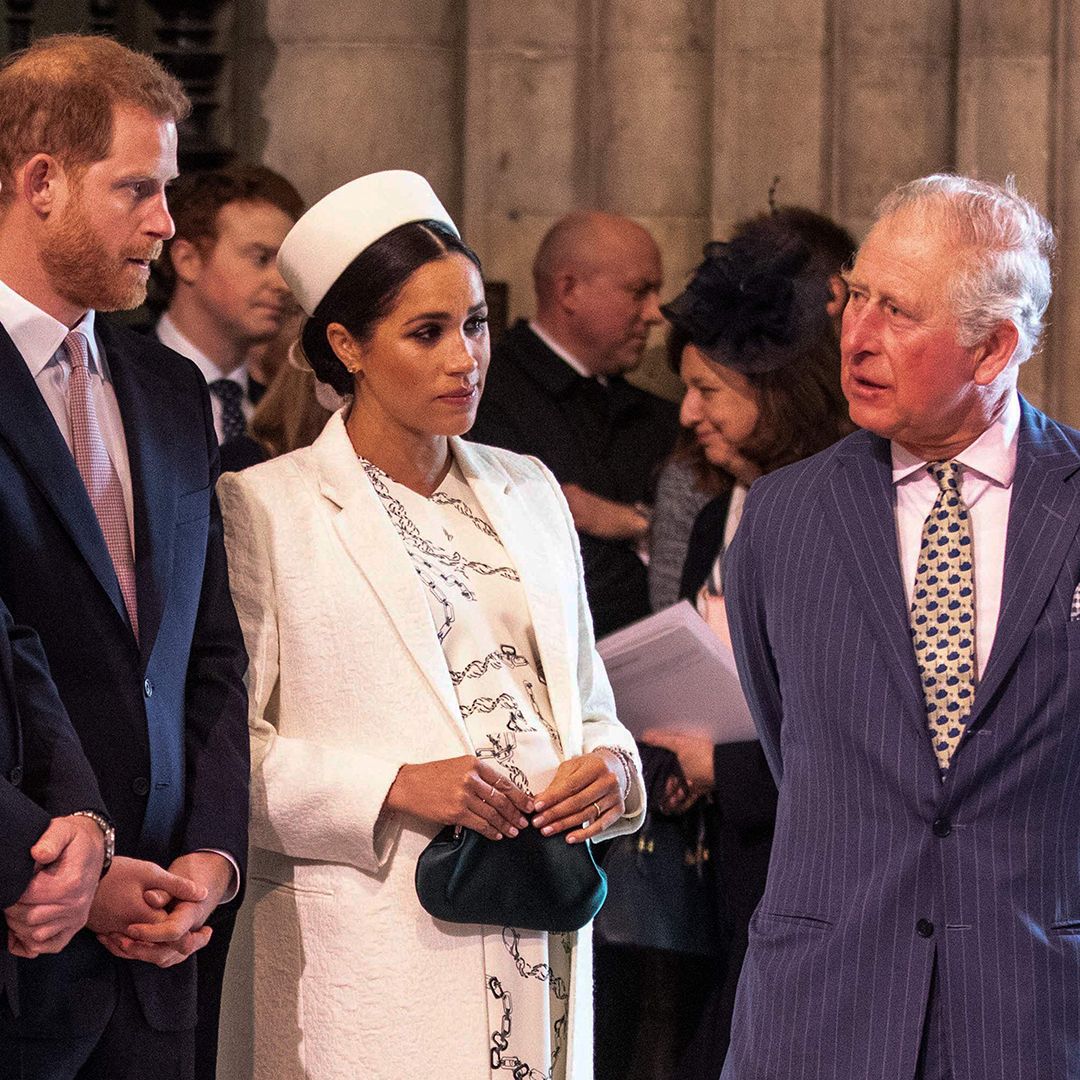
It might not be clear yet if Prince Harry and King Charles are firmly on the road to reconciliation after their buzzy one-on-one meeting on Sept. 10, but a new report suggests that they have found common ground when it comes to a cause they both consider vitally important.
According to a report from Express, the King shares the concerns Prince Harry and Meghan Markle have about the impact of social media on children and young people—and Charles doesn't just passively share Harry and Meghan's concerns, it seems.
The King reportedly held a 40-minute meeting with Reverend Tommy MacNeil, who runs the Shed Project mental health charity on the Isle of Lewis. The private meeting, which is said to have been held at Balmoral Castle in Scotland over the weekend was an opportunity for Charles to discuss his concerns about the issue with someone who works in that space, according to Express.
Speaking to The Telegraph, MacNeil opened up about the meeting and what he and the King discussed.
“He was very engaged and 100 percent appreciative of the work we are doing," MacNeil said of his private chat with Charles. “Young people today are growing up in a different world to their parents. The stuff they are accessing on their phones is frightening."
MacNeil also stressed that it's an issue the monarch takes seriously.
“King Charles was clearly very concerned about the whole issue and negative influences on young people from social media," he added.
Harry and Meghan have also made it clear that social media's impact on young people is an issue they're very concerned about.
Last year, the Duke and Duchess of Sussex founded The Parents' Network to support families who have suffered from the harmful effects of social media and in April, while they were in NYC for the TIME100 Summit, the couple unveiled the Lost Screen Memorial.
The memorial, which Harry and Meghan created through their Archewell Foundation, was dedicated to young people lost too soon and to serve as a space for remembrance for families and other loved ones who have lost young people as a result the harmful impact of social media.
Located near Madison Square Garden, the Lost Screen Memorial features 50 large, illuminated smartphones each of which displays the lock screen photo of a child whose life was "tragically cut short due to the harms of social media," according to the couple's foundation.
"These children were not sick. Their deaths were not inevitable—they were exposed to, and in many cases were pushed harmful content online, the kind any child could encounter," the Duke of Sussex said when unveiling the installation. "No child should be exploited, groomed, or preyed upon in digital spaces. To the platforms, they may be seen as statistics. To their families, they were cherished and irreplaceable."
"This memorial is for children who have lost their lives as a result of the harm they suffered on social media," the memorial's page on the Archewell Foundation's website explains. "These images represent the ones their parents have on their phone lockscreens. Their faces serve as a constant reminder of what has been lost. The responsibility to keep children safe online should not lie with parents alone."
The Archewell Foundation's page about the Lost Screen Memorial also includes a call to action to hold technology companies accountable for implementing and enforcing safety standards to protect children on social media.
"The technology companies who profit from children’s time on their apps have an obligation to design them with safety in mind and should be held to safety standards," the Archewell Foundation website reads. "Join us as we demand safety by design from the social media platforms so that no child is lost to social media."
This echoes the call for accountability Harry himself made while unveiling the Lost Screen Memorial in April.
"While social media companies claim to be taking action, most still withhold critical data from grieving parents—data that could provide answers and accountability," he said. "This is a growing crisis. Social media is quietly taking our children, and those with the power to make change are failing to act."







